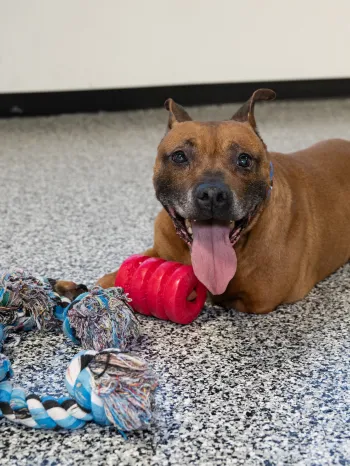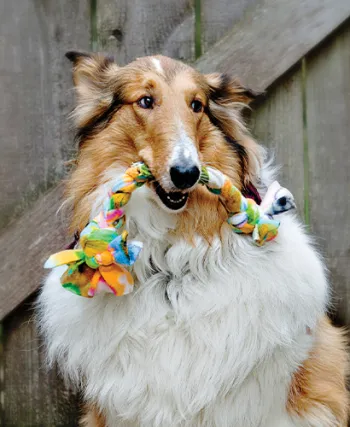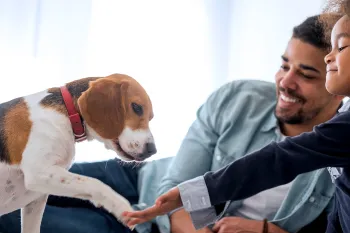Sooner or later, many dog lovers return home to find some unexpected damage inflicted on their furniture, shoes or other items by their dog or, more specifically, their dog's teeth. Although dogs make great use of their vision and sense of smell to explore the world, one of their favorite ways to take in new information is to put their mouths to work.
Fortunately, chewing can be directed to appropriate items so your dog isn't jeopardizing their own safety or destroying things you value.
Until they've learned what they can and can't chew, however, the best medicine is prevention. By setting your dog up for success, you can avoid having to replace your favorite chair or paying for an expensive visit to the veterinarian when your dog has ingested something dangerous.
Understand your dog
Puppies, like infants and toddlers, explore their world by putting objects in their mouths. And, like babies, they teethe for about six months, which usually creates some discomfort. Chewing not only facilitates teething, but also makes sore gums feel better.
Adult dogs may engage in destructive chewing for any number of reasons, including as a coping strategy for stress and boredom. To stop the behavior, you must first determine why your dog is chewing—and remember, they're not doing it to spite you. Possible reasons for destructive chewing include:
- As a puppy, they weren't taught what is and isn’t acceptable to chew.
- They don’t have access to safe and appropriate chew toys.
- They're bored.
- They suffer from separation anxiety.
- Their behavior is fear-related, and chewing is a coping skill.
- Biting and chewing simply feel really good.
If you believe your dog's chewing is related to serious anxiety, you may need to consult a behavior professional for help with both separation anxiety and fear-related behaviors.
Top 10 pet tips
Sign up to receive our exclusive e-book full of important information about caring for your pet, including training techniques and answers to frequently asked questions.
Punishment doesn't work
There may be times when you’re panicked over what your dog is chewing—such as a bottle of medication—which is why training them to trade you for treats will ensure they give up even the most fun items. Scolding or pulling things out of your dog’s mouth can cause behavior issues to develop. Why risk your dog’s trust when positive reinforcement methods are more effective?
And that “guilty look” is actually a canine submissive posture that dogs show when they feel threatened or unsafe. When you're angry and upset, your dog feels threatened by your tone of voice, body language or facial expressions, so they may hide or show submissive postures. Building and maintaining a positive, trusting relationship with your dog is the foundation of a happy life together!




